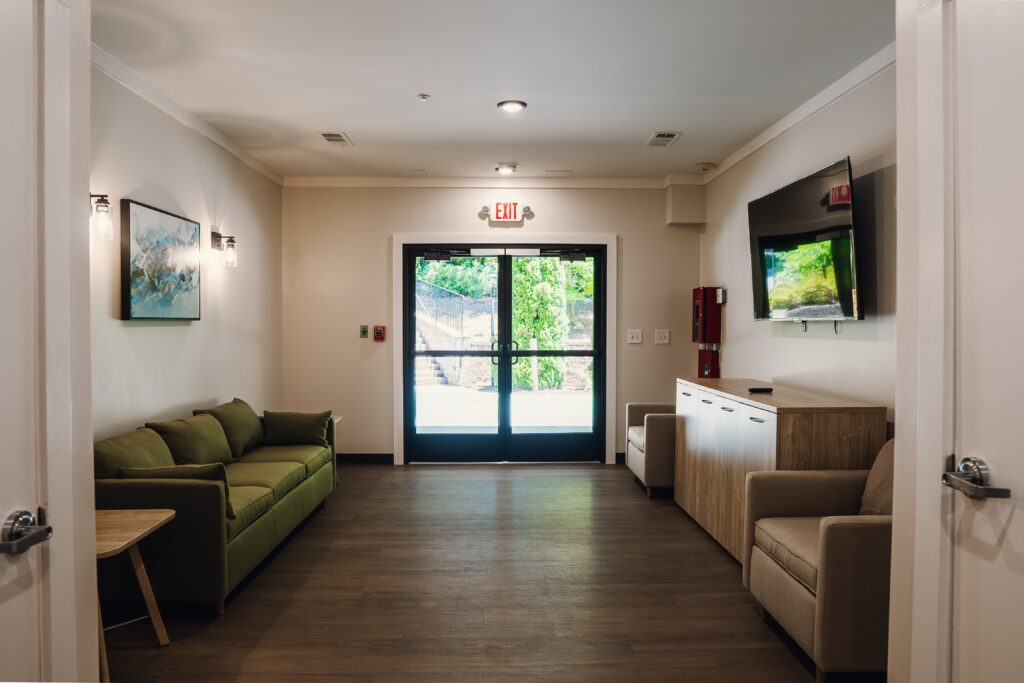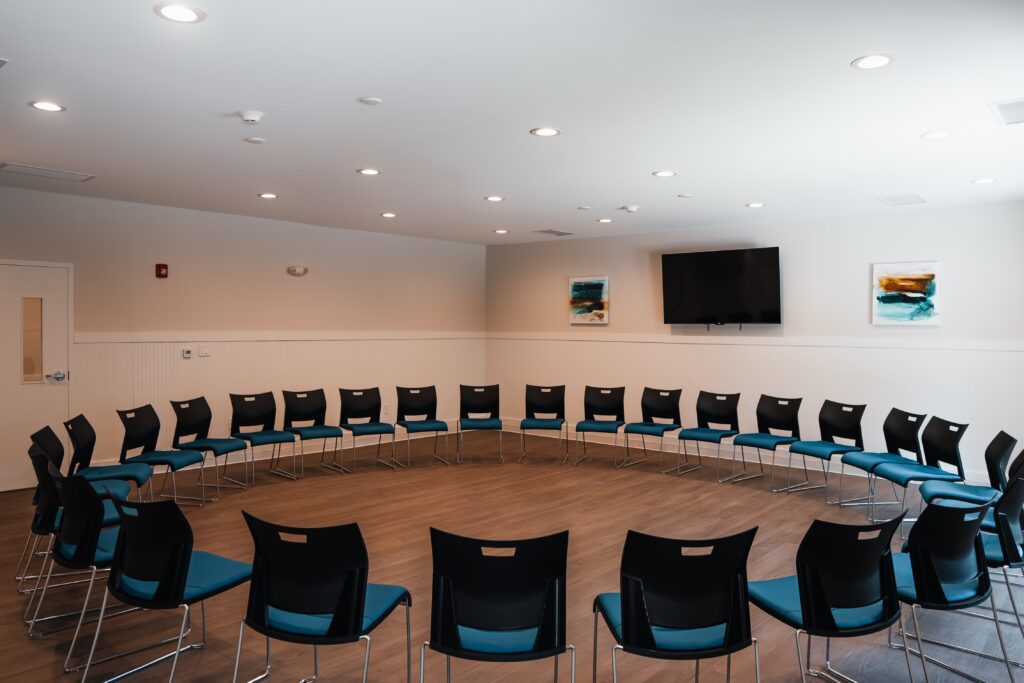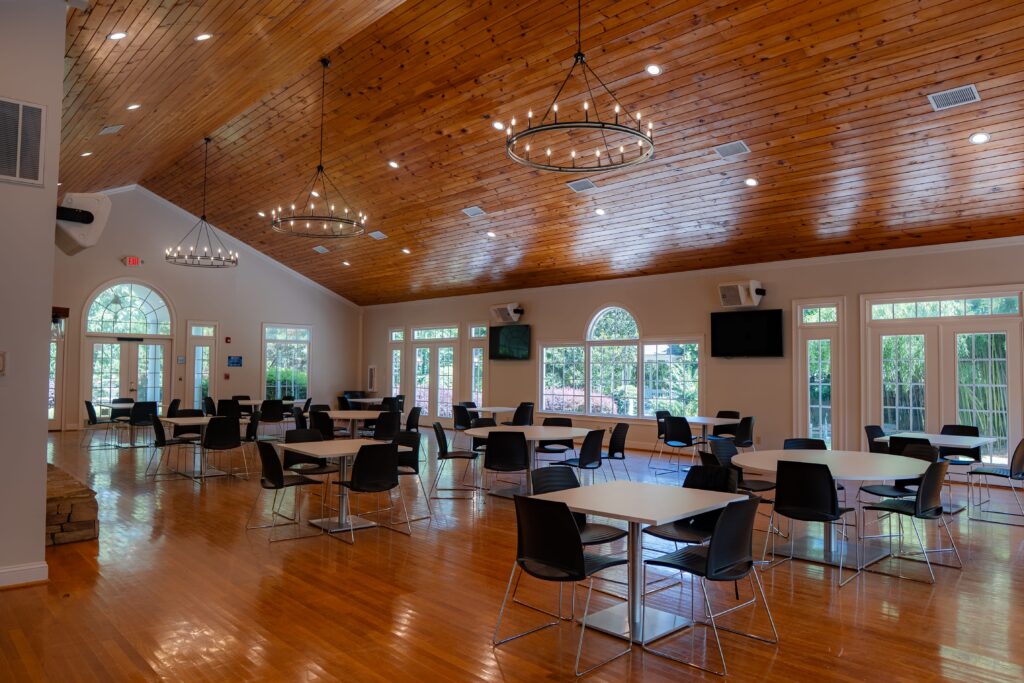Find Healing From Self-Harm Today
Self-Harm Treatment in Georgia
Self-harm is a complex and deeply personal issue that affects people from all walks of life. At Kingston Wellness Retreat, our self-harm treatment can help you find healing.
Self-harm is a complex and deeply personal issue that affects people from all walks of life. At Kingston Wellness Retreat, we understand that self-harm is often a symptom of a larger emotional or psychological struggle, and we’re here to offer compassionate, evidence-based care to help individuals regain control of their mental and emotional well-being.
Our Self-Harm Treatment programs are designed to address the root causes of self-injury, offering a supportive, healing environment for recovery. Learn more about our Georgia mental health programs today.
What is Self-Harm and Self-Injury?
Self-harm, also known as self-injury, refers to any intentional act of harming one’s own body without suicidal intent. This can take many forms, including cutting, burning, scratching, or hitting oneself.
For many individuals, self-harm is a coping mechanism used to deal with overwhelming emotions, anxiety, depression, or trauma. It can provide a temporary sense of relief but ultimately leads to more emotional pain, guilt, and shame. Understanding and treating the underlying causes of self-harm is essential for long-term recovery.
Why Do People Self-Harm?
People engage in self-harm for various reasons, many of which are related to emotional regulation. For some, self-harm provides a release from feelings of numbness or a way to express emotions that they feel unable to communicate. Others may self-harm as a form of punishment or to cope with intense emotional pain.
The reasons behind self-harm are often deeply rooted in past trauma, mental health conditions, or unresolved emotional conflicts. It’s important to recognize that self-harm is not a “cry for attention” but rather a sign that someone is struggling with their mental health and needs support.
Is Self-Harm A Mental Disorder?
Self-harm itself is not classified as a standalone mental disorder. However, it is often a symptom of underlying mental health conditions such as borderline personality disorder (BPD), depression, anxiety, or post-traumatic stress disorder (PTSD). While it may not be a disorder in its own right, self-harm is a serious behavior that requires professional treatment to address both the behavior and the underlying issues driving it.
Anxiety and Self-Harm
Anxiety can be a powerful trigger for self-harm. Individuals dealing with severe anxiety may feel overwhelmed by their emotions, leading them to seek relief through self-injury. For some, self-harm offers a way to regain control when they feel powerless over their anxiety. At Kingston Wellness Retreat, our Self-Harm Treatment programs provide specialized therapy to help individuals manage their anxiety in healthier, more constructive ways.
Depression and Self-Harm
Depression is another common factor in self-harm. Feelings of hopelessness, worthlessness, or emotional numbness can drive individuals to self-injure as a means of feeling something or expressing their internal pain. Our treatment programs are designed to address the symptoms of depression and help individuals replace self-harm with positive coping mechanisms. Through therapy, support groups, and holistic interventions, we empower individuals to break the cycle of depression and self-injury.
How Do I Know I Need Self-Harm Treatment?
If you or someone you love is engaging in self-harm, it’s important to seek professional help right away.
Self-harm may not always be obvious, as many individuals go to great lengths to hide their behavior. However, if you notice unexplained injuries, frequent bandages, or attempts to isolate, these may be signs that self-harm is occurring.
Additionally, individuals who struggle with intense emotions, trauma, or other mental health conditions may benefit from specialized Self-Harm Treatment.
Signs and Symptoms of Self-Harm
Recognizing the signs of self-harm is critical for early intervention.
Some of the most common signs include:
- Unexplained cuts, burns, or bruises, often on the arms, legs, or stomach
- Wearing long sleeves or pants even in warm weather
- Frequent use of bandages or first-aid supplies
- Isolation or withdrawal from friends and family
- Emotional instability or intense mood swings
- Low self-esteem or feelings of worthlessness
- Difficulty expressing emotions verbally
- Anxiety, depression, or other mental health symptoms
Our Self-Harm Treatment Programs
At Kingston Wellness Retreat, we offer a variety of treatment options designed to meet the unique needs of individuals struggling with self-harm. Our programs are evidence-based, trauma-informed, and compassionate, ensuring that each client receives the level of care they need for lasting recovery.
Residential Treatment Program
Our residential mental health treatment program provides 24/7 support in a safe, structured environment. Clients live on-site, allowing them to focus fully on their recovery without external distractions. Residential treatment includes individual therapy, group therapy, and holistic therapies designed to address the emotional and psychological roots of self-harm.
Partial Hospitalization Program (PHP)
Partial Hospitalization Programming is a step down from residential treatment but still offers a high level of care. Clients attend therapy and treatment sessions during the day but return home in the evenings. PHP allows for intensive treatment while providing more flexibility for those who need to balance treatment with daily responsibilities.
Intensive Outpatient Program (IOP)
Our Georgia IOP offers structured treatment several days a week, focusing on developing healthy coping mechanisms and emotional regulation skills. This program is ideal for individuals who are stable enough to live at home but still require consistent therapeutic support.
Outpatient Program (OP)
For those who need ongoing support but have completed more intensive levels of care, our outpatient program offers flexible therapy sessions. This option is perfect for individuals looking to maintain their progress while returning to daily life.
Preventing Self-Harm
Prevention is a key component of our Self-Harm Treatment approach. By addressing the underlying mental health conditions that contribute to self-injury, we help individuals develop healthier ways to cope with their emotions.
Some of the preventive measures we focus on include:
- Emotional Regulation: Teaching clients how to recognize and manage their emotions without resorting to self-harm.
- Healthy Coping Mechanisms: Identifying alternative ways to express and process feelings, such as art therapy, journaling, or physical activity.
- Building a Support Network: Encouraging clients to build strong, positive relationships with friends, family, and support groups to prevent isolation.
- Mindfulness and Meditation: Helping clients develop mindfulness practices to stay grounded in the present moment and reduce emotional overwhelm.
Self-Harm Treatments
At Kingston Wellness Retreat, we utilize a range of therapeutic modalities to address self-harm and its underlying causes. Some of the most effective treatments include:
- Cognitive Behavioral Therapy (CBT): CBT is one of the most effective treatments for self-harm. It helps individuals identify and change negative thought patterns that contribute to self-injury and replace them with healthier behaviors.
- Dialectical Behavior Therapy (DBT): DBT is particularly effective for individuals who engage in self-harm as a result of emotional dysregulation or borderline personality disorder. DBT teaches skills for managing intense emotions and reducing impulsive behaviors.
- Trauma-Informed Therapy: Many individuals who self-harm have experienced trauma. Our trauma-informed approach ensures that therapy is sensitive to the needs of those with a history of trauma, focusing on healing both the body and mind.
- Group Therapy: Group therapy provides a supportive environment where individuals can share their experiences, learn from others, and develop a sense of community.
- Holistic Therapies: We offer holistic treatments such as yoga, art therapy, and mindfulness practices to help clients develop a strong connection between their mind and body.
Mental Health Treatment
Get Help Now
If you or a loved one is struggling with mental health issues or dual diagnosis disorders and seeking a balanced approach to recovery, we can help.
Begin Self-Harm Treatment in Georgia Today
If you or a loved one is struggling with self-harm, Kingston Wellness Retreat is here to help. Our compassionate team of professionals is dedicated to providing the support and treatment necessary for lasting recovery.
Self-harm doesn’t have to define your life—contact us today to learn more about our Self-Harm Treatment programs and take the first step toward healing.
Mental Health Programs

At Kingston Wellness, our mental health treatment programs are aimed at providing maximum healing and comfort, so you can recover in peace.
Tour Our Facility

Located in the scenic heart of Georgia, our facility offers access to the natural beauty and soothing mountains of North Georgia.










